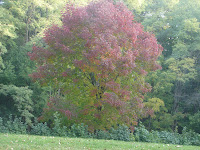
Live music venues are like a town squares where people gather to have a good time--to catch up on each others lives, to hear the songs we love. If we don't go out and support live music these town squares will disappear.
We had a good time Sunday at Sip and Stir. Some old friends came and we met some new ones, too. Nice night, except that the Sip and Stir is closing.
Friday at the Long Branch is always fun, but last Friday wasn’t quite what we expected.
The best-laid schemes o’ mice an’ men
Gang aft agley.
The poet should have said “o’ mice an’ men an’ musicians in particular.”
We had planned for “The Second Set” to feature the songs of Duke Ellington and Bobby Darin. But you never know about band leaders. Eddie decided to get bronchitis instead, which means that he couldn’t sing and it’s tough to do much with Darin in those circumstances.
Fortunately for us, Craig Dove was playing bass and Craig is a good singer himself (along with being a good bass, good piano, good guitar). We didn’t do Darin, but Craig provided some good vocals.
We are hoping to do Ellington and Darin this coming Friday, but that depends on Eddie’s medical progress. If he can sing, “The Second Set” will bring Ellington and Darin. If not, “The Second Set” will offer bring a selection of songs from the Big Band Era. Either will feature some songs you know and love and some songs you are glad to learn about.
Because I needed a laugh, our drummer Jon Wilson sent me Bill Cosby’s description of his own early days as a drummer.






















